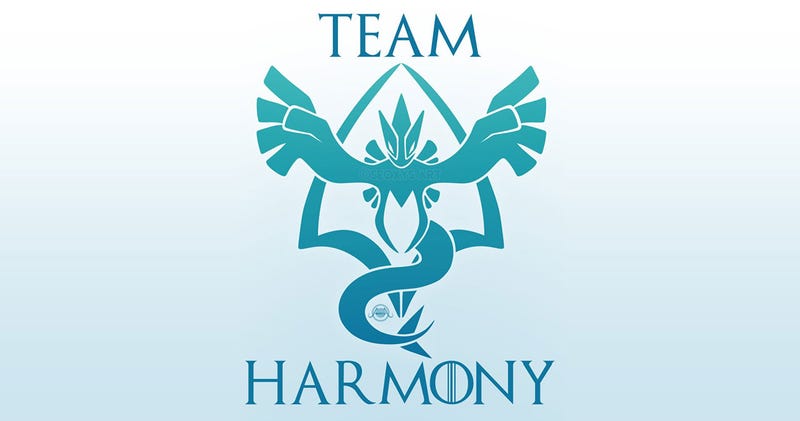As I was putting the final touches on this post this morning, I began reading the horrifying reports out of Nice, France. I debated for a while whether to hold off on this post. But as I say at the end of this article, this is a game that has actually humanized a lot of people to a lot of other people. In other words, it is a very real tool to use against terror if we choose for it to be. Because of that, I hope you are able to take something very profound and authentic from what might otherwise simply be, on the surface level, a how-to article about responding to a simple game. ~E.A.
The first generation of Pokemon games--Red and Blue (not Yellow--that game was too goofy for me)--were a formative influence in my childhood. There weren't many pets that I could have as a kid owing to allergies my sister and I have, so my choices were fish or Pokemon. I tried both and learned that Pokemon stick around longer and don't ever need to be flushed down the toilet.
Now, twenty years after that first generation of games, Pokemon Go has arrived and genuinely taken the country (and Australia, New Zealand, etc.) by storm. It puts the quest of catching Pokemon into the real world rather than the make-believe world (called Kanto) of the original games, meaning that people now must physically travel to different real-world locations to catch Pokemon as well as to find Pokemon-catching supplies and opponents to train their Pokemon with.
Niantic, the developers of Pokemon Go, and Nintendo, the developers of the original Pokemon games, installed many of these "PokeStops" and gyms at churches, as well as other prominent public spots (parks, monuments, landmarks, that sort of thing), so now, all of the sudden, churches across the country have reacted--or been forced to react--to this brand-new existential identity and change in purpose and vocation: how to approach the people who have arrived on their doorsteps not for Jesus, but for a chance at catching Charizard?
As a pastor and Pokemon fan, if I may, offer these few suggestions to colleagues and churches around the world wondering how best to do this brand-new form of outreach that has presented itself to us:
First and foremost: make clear that people are *welcome* at your place of worship. Put up a sign, a post on your church website or (in my case) church Facebook page that explicitly welcomes Pokemon Go players to your campus and makes it clear that they may play the game on your property (with the understanding, of course, that they respect your property--which the vast, vast majority of players seem to be doing).
Secondly, though, do more than simply extend a verbal welcome: extend a material welcome as well. You'll note in my Facebook page post that I let players know that we have coffee and ice water on Sundays, and that on days when our sanctuary is open (which isn't always possible since my office is in a separate building from our sanctuary), I'll be putting a Lure (which brings in Pokemon for players to catch) up on our church's PokeStop. All of these are material examples of communicating to players that, again, they are welcome at your place of worship.
There are more active forms of engagement on top of the more passive forms of simply setting out drinks or Lure Modules--consider hosting a contest for players if your church is a Gym, with the winner getting a prize from the church like a gift card. If this game is still kicking come Easter in April, I hope to be able to host a Pokemon hunt for children alongside our regular Easter egg hunt!
But perhaps most importantly, once players are present on your property, actually make the effort to initiate and maintain a relationship with them built on kindness and compassion. I created a thread on the Pokemon Go subreddit to thank the redditors there for their celebration of the various ways in which churches around them were making that effort to be caring and compassionate towards their newfound trainer-guests.
What that thread became, though, largely, was people in turn thanking *me* for offering up a grateful Christian witness to them in contrast to the negative experiences with religion some of them have had, and even had very recently as a result of this new game.
After Dallas, after Minneapolis and Baton Rouge, and now after Nice, we desperate need more of that which helps us to see the humanity in one another rather than the bogeyman in one another. We need tools that aid autistic children in socializing, that aid body-shamed, out-of-shape souls in getting outside without that fear or shame, that aid churches in seeing people outside their immediate orbit of week-in, week-out worshipers who may or may not actually be representative of the communities in which these churches are.
See the humanity in your new visitors, my colleagues and other churches. Embrace them, welcome them in, and show them the love and hospitality of Jesus Christ.
In the midst of the terrors of the world, our ways of compassion and grace may well depend upon it.
Seattle, Washington
July 15, 2016

No comments:
Post a Comment